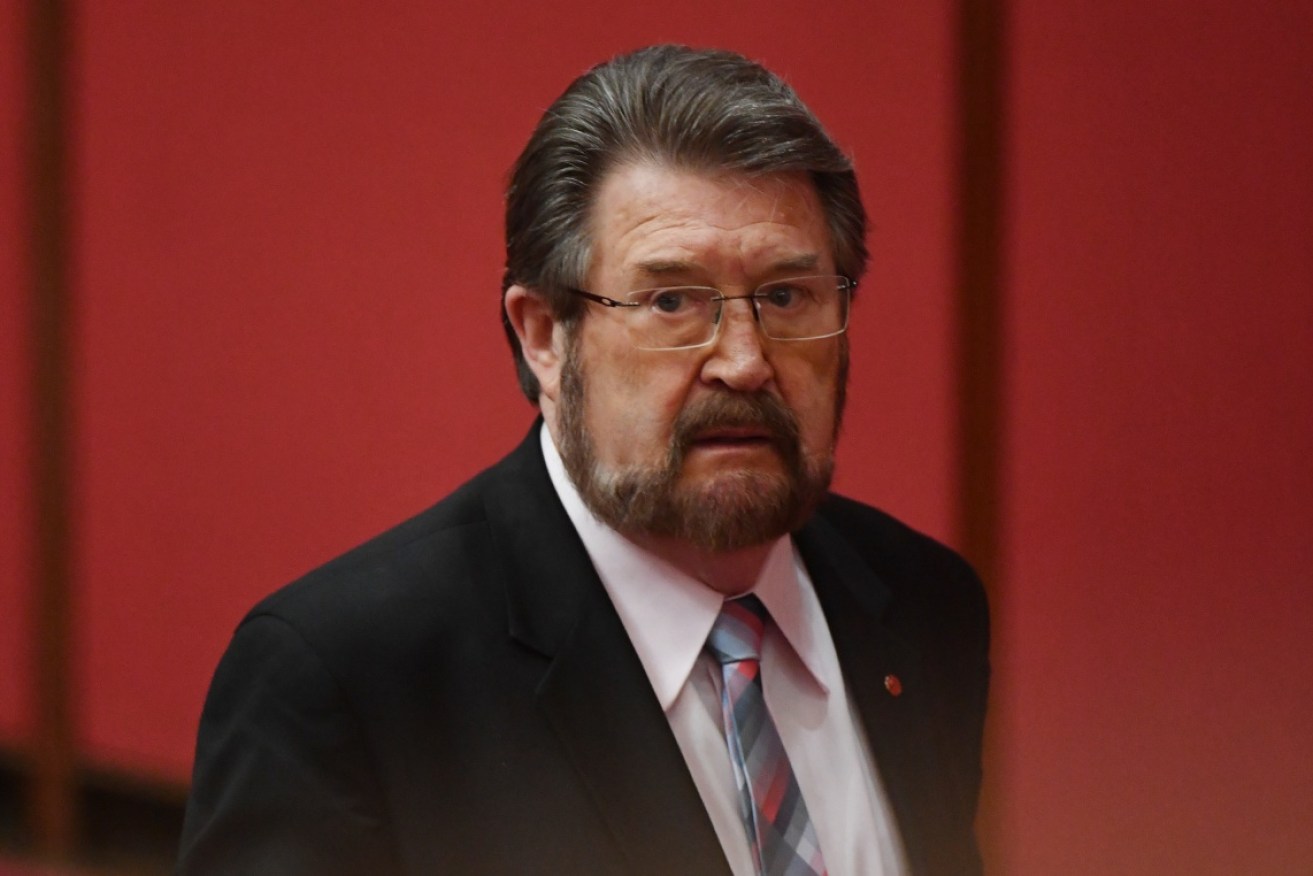‘Medevac’ bill passes senate after Hinch clears the way


Senator Derryn Hinch has doubts over the medical transfer bill. Photo: AAP
Key crossbench senator Derryn Hinch has cleared the way for the ‘medevac’ bill to pass the senate, with Labor, the Greens and other crossbenchers ensuring its passage.
Senator Hinch had demanded a security briefing before deciding if he will back faster medical transfers for asylum seekers in offshore detention.
He had supported the changes late last year and was thought to be wavering as the draft laws returned to the federal parliament’s upper house for final approval.
On Wednesday morning, he told the senate he would wave the bill through because it was clear it only applied to those asylum seekers already on Nauru and Manus Island.
Senator Hinch said his Justice Party would support the “humanitarian” legislation.
Labor, Greens and crossbenchers combined to pass the legislation.
After the vote, Labor Senator Penny Wong said people recognised that not dealing with the medical issues of asylum seekers was an “anachronistic” position that did not fit modern Australia.
The changes make it easier for doctors to facilitate medical evacuations for sick asylum seekers on Manus Island and Nauru.
Cabinet minister Simon Birmingham fears the reforms will restart the people-smuggling trade and had urged Senator Hinch to reconsider his support.
“We would urge Derryn and every crossbench member to think long and hard about the necessity of this legislation versus the consequences of this legislation,” he told Sky News.
Home Affairs Minister Peter Dutton is already claiming more asylum seekers will land in Australia after the changes narrowly cleared the lower house on Tuesday, handing the government an historic defeat.
It was the first time in almost 80 years that a federal government had been rolled on significant legislation in the House of Representatives.
Mr Dutton said the development marked a dark day for Labor.
“This is a very problematic position that Bill Shorten has put our country in,” he told reporters in Canberra.
“He needs to explain why he has taken a decision that is inconsistent with the advice from our intelligence, our law enforcement and our operations sovereign borders agencies.
“When you act against the advice of the experts – including the Chief of the Defence Force, the head of ASIO and the head of the federal police – I promise you, there’s a price to pay.”
Opposition Leader Bill Shorten sought to send a message to would-be asylum seekers.
“I just say to people trying to put out the welcome mat for people smugglers, the medivac legislation applies for people who are already there, it does not apply to anyone new,” he told reporters at Parliament House.
“So if you think that by buying a ticket on an unsafe boat, paying a people smuggler, a criminal syndicate, you’ll get a better deal to come to Australia, you’re wrong.”
Under the negotiated amendments, the home affairs minister will have 72 hours to make a decision on whether to agree to a medical transfer.
If the minister rejects the medical reasons, the decision may be reviewed by a medical panel, which can recommend it goes ahead.
Then it’s up to the minister to reject it on medical grounds again, or national security grounds, or if the person has a substantial criminal record and poses a threat to the Australian community.
For the bill to pass the Senate, where it is likely to return later on Wednesday, 39 votes in favour will be needed.
With Labor’s 26 votes and the Greens’ nine, four other senators will need to give the changes their backing. Those votes now appear secured.








